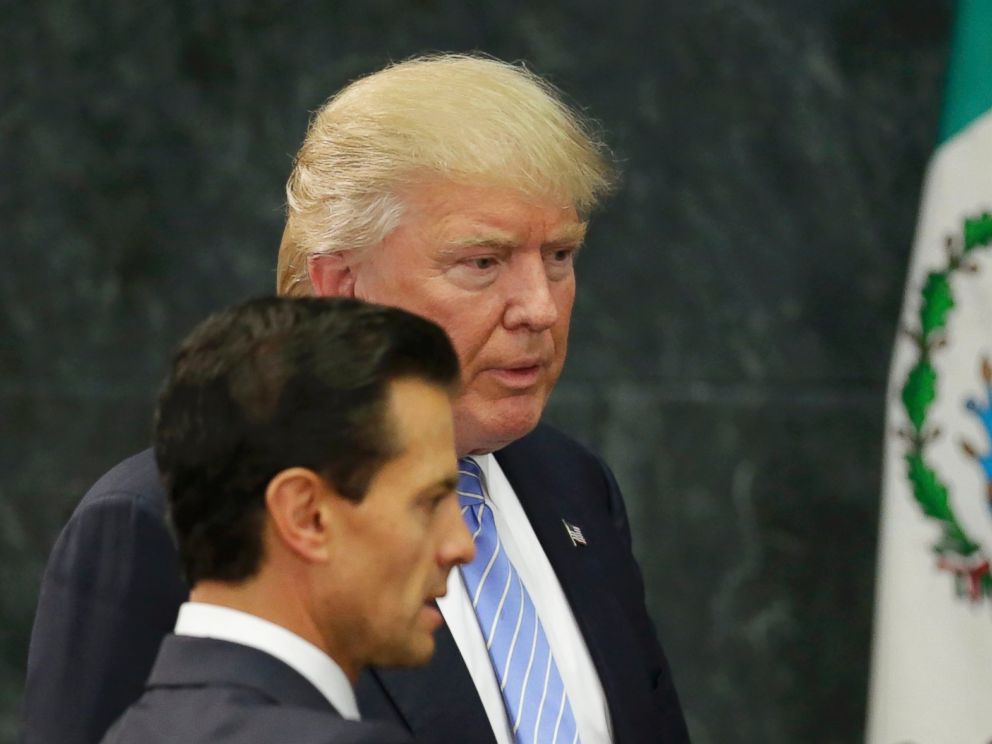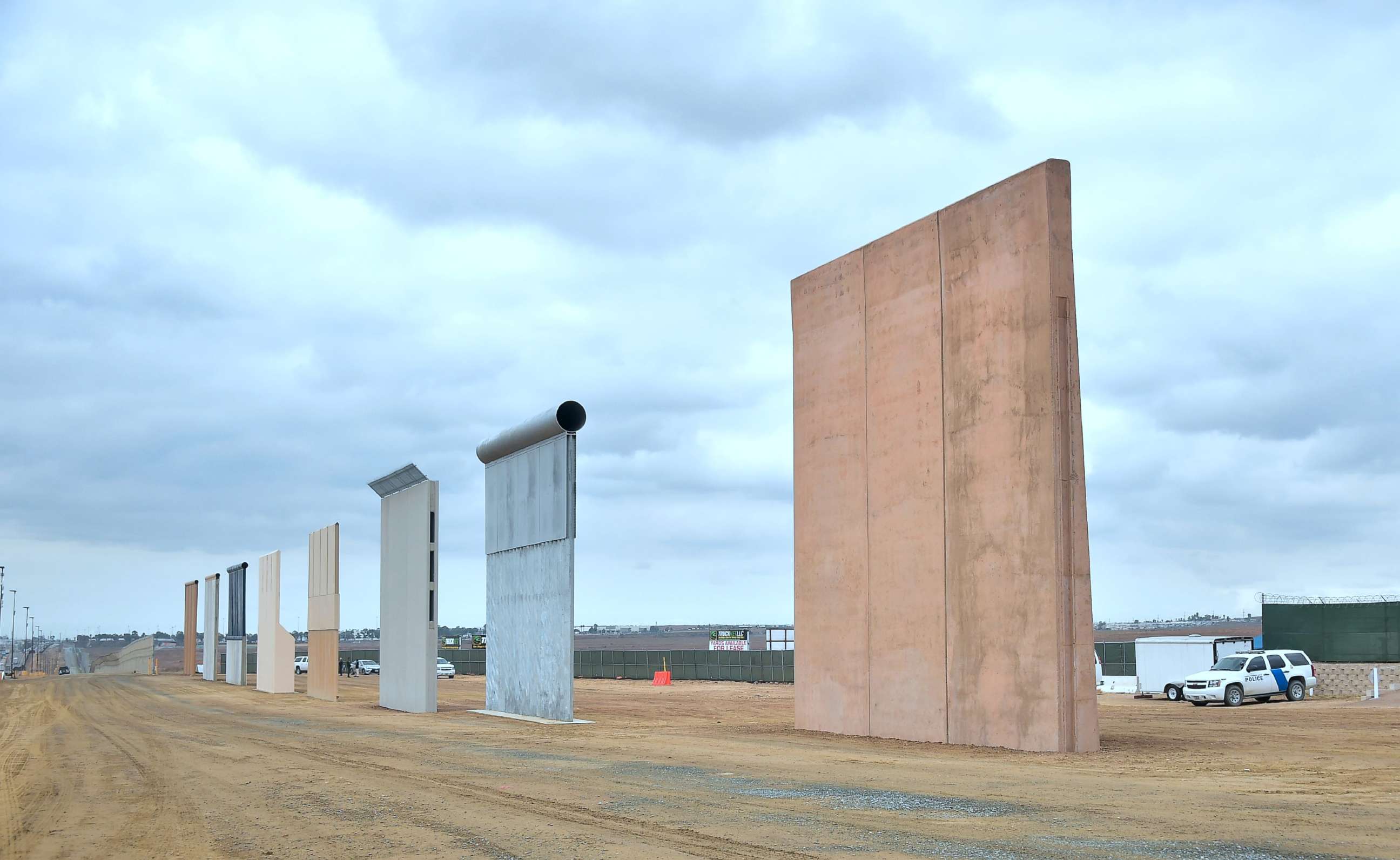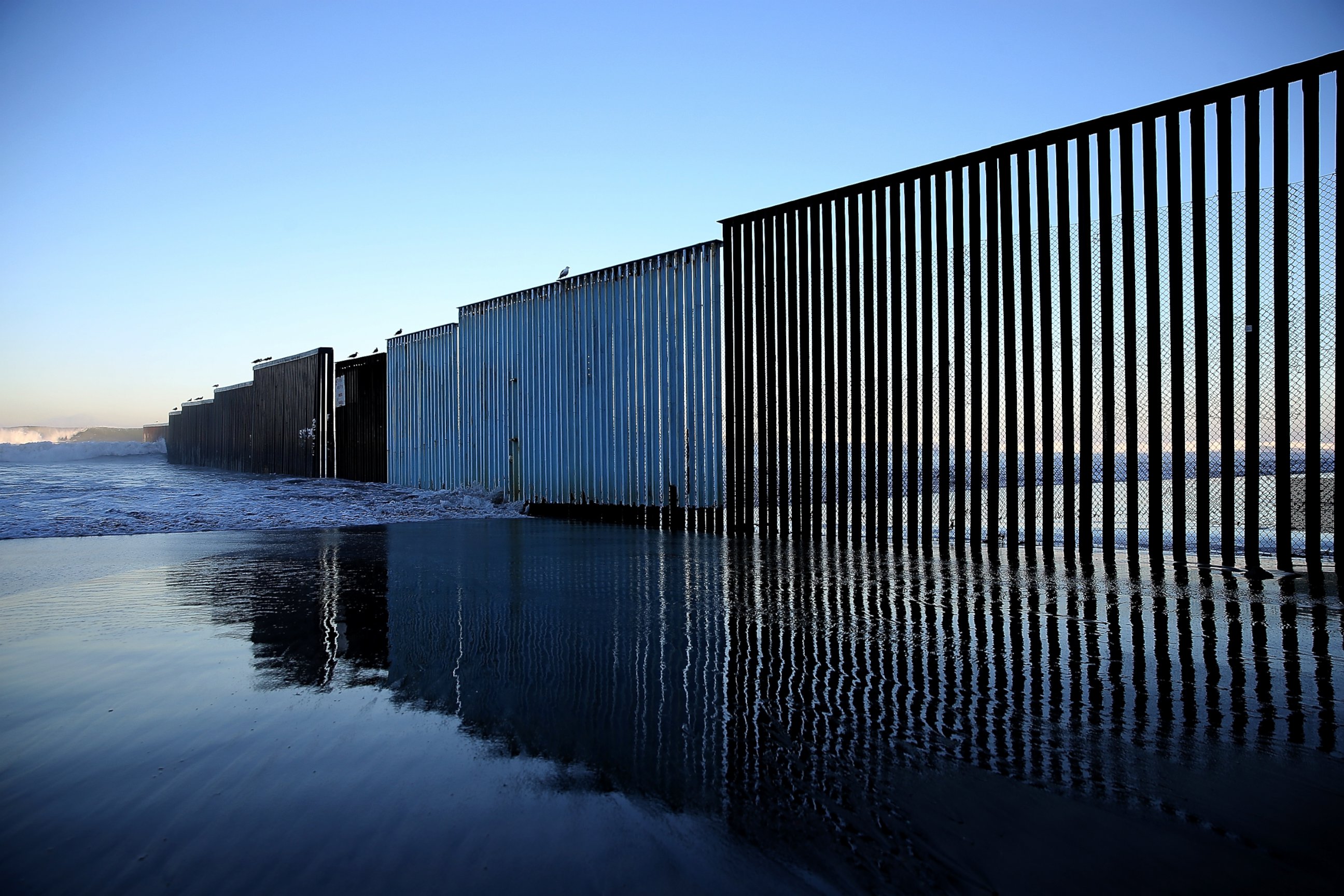Mexican president's US visit canceled after phone call with Trump
— -- Mexican President Enrique Peña Nieto was preparing to visit the U.S. and meet with President Donald Trump until a phone call last week devolved into a testy exchange over Trump's proposed border wall, two senior administration officials confirmed to ABC News.
The disagreement is the latest blow to relations between the two neighbors as the administration continues to swing between cooperation and fiery rhetoric - and the allies remain at loggerheads over a border wall.
The plans for Peña Nieto to visit were in an early planning phase, according to both officials, with one saying the call was supposed to lay the groundwork for a formal invitation for a visit during which the two leaders would sign a series of agreements on "broad-based" issues like security and energy.
But according to one official, Trump went off script and brought up the wall. Peña Nieto said Mexico would not support the wall, while Trump reiterated his campaign position that it would. Both sides then concluded together that now was not the right time to move forward with a visit, according to the other official.

"The two leaders mutually agree now was not the immediate right time for a visit, but that they would not their teams continue to talk and work together," the official told ABC News.
The call was not nasty, but stern or firm, according to the officials.
Mexico has had no comment on the testy call or the cancelled visit/ Last week, it issued a statement saying the two men discussed mutual issues of security, trade and migration.
A calling card of his campaign, Trump is moving ahead with plans for a border wall, although many of the details, such as how long or in which parts, are still unknown. U.S. Customs and Border Protection began testing wall prototypes in December, with six companies chosen to build eight sample walls — four made of concrete and four of other materials.
Mexico has denied repeatedly that it would pay for the wall, and Peña Nieto opposes its construction.

The White House declined to confirm the details, but a spokesperson for the National Security Council stressed that the two countries' alliance remains strong.
"We enjoy a great relationship with Mexico, and the two administrations have been working for a year to deepen our cooperation across a range of issues, including security, immigration, trade and economics," NSC spokesperson Michael Anton told ABC News.
Officials in both countries are scrambling now to put things back together in order to get those memoranda of understanding signed. Despite the hot rhetoric from Trump, and the deep dislike of him in Mexico, the U.S. and Mexico have close cooperation on issues like countering drug cartels and weapons trafficking, in large part due to the work of Mexican Foreign Secretary Luis Videgaray and Secretary of State Rex Tillerson.

But while Tillerson was in Mexico at the start of February touting the partnership with Mexico, Trump was back at the White House, blasting the country for pouring drugs into the U.S. and threatening to cut off aid.
"These countries are not our friends," Trump said during a roundtable with Customs and Border Protection officials. "We send them massive aid, and they're pouring drugs into our country, and they're laughing at us."
Comments like those have fed Trump's unpopularity in Mexico, with 65 percent of Mexicans holding unfavorable views of the U.S. in fall 2017, according to a poll released in July by the firm Buendia and Laredo, the Chicago Council of Global Affairs, and the Woodrow Wilson International Center for Scholars.
It remains unclear when the visit will be back on, especially ahead of Mexico's fast-approaching presidential election in July. Given Trump's unpopularity, it may become harder and harder politically for Peña Nieto and his party to be seen meeting with Trump.




